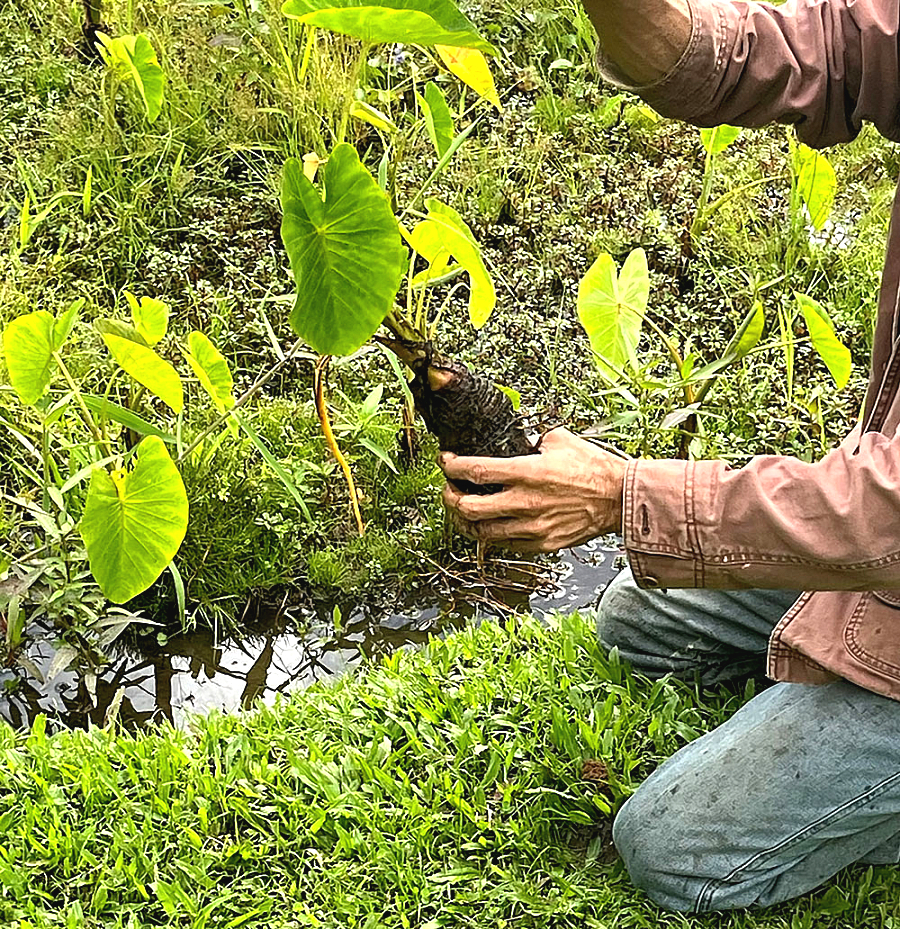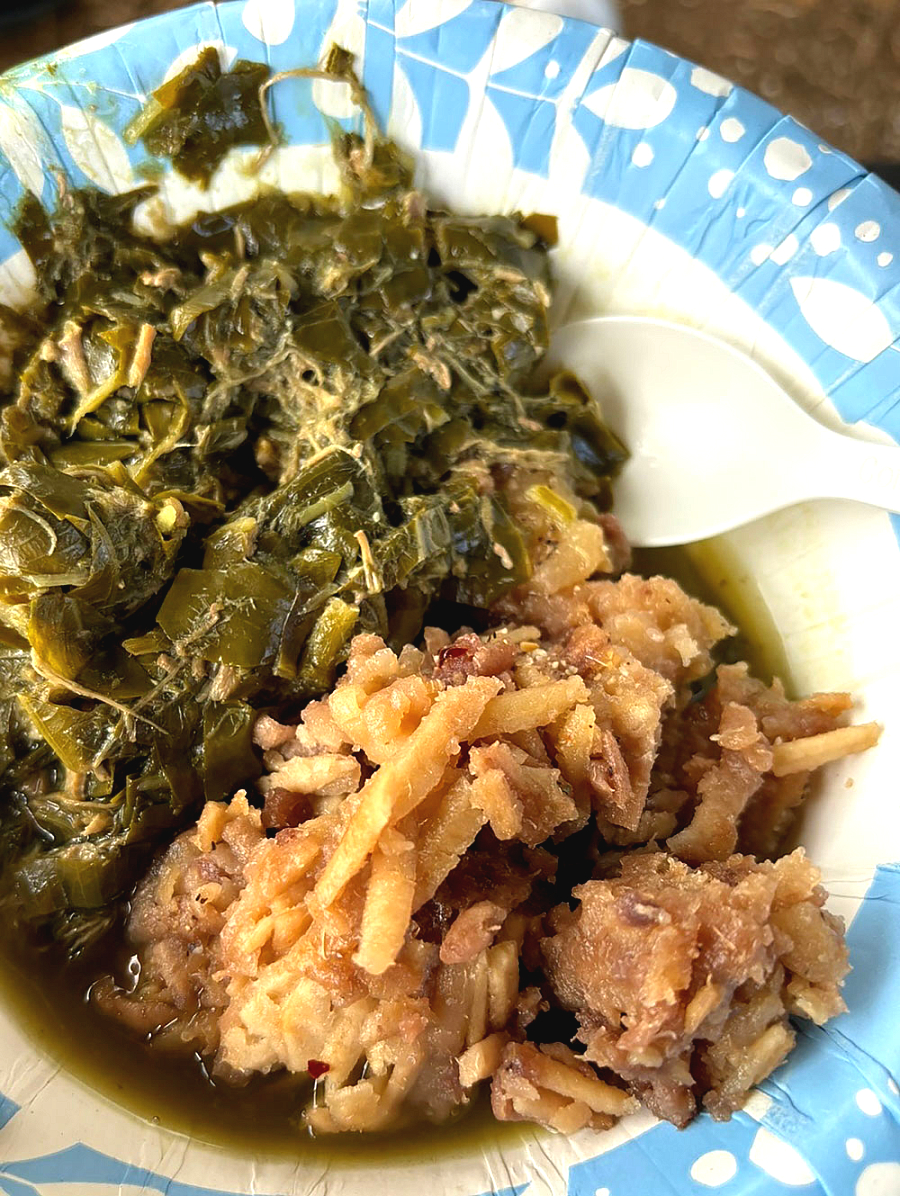By Kat Mueller, Program Specialist, USDA Food and Nutrition Service (FNS), Western Regional Office
For many communities, the SNAP-Education program provides much more than basic nutrition guidance. In Kāneʻohe (in Honolulu), Hawaii, the SNAP-Ed funded Luluku Farms’ Aloha ʻĀina Agri-Cultural Restoration project uses the ʻĀina (land) to preserve traditional crops so the community can achieve self-sustainability, while providing keiki (kids) opportunities to learn about their cultural and traditional practices — as well as nutrition education. The notion of fertile land that Aloha ʻĀina symbolizes promotes community engagement, bolsters cultural preservation, and improves nutrition security by increasing community access to culturally appropriate foods.
Keiki from local schools travel to Luluku Farms weekly to plant and harvest crops, and learn how to prepare and preserve traditional foods, like kalo (taro). Project efforts also include community workshops to demonstrate proper use of tools needed to manually process starchy foods.

Earlier this year, my colleague, Rachel Page, and I had the opportunity to join the Hawaii Department of Human Services (DHS) for a SNAP-Ed visit to this site, which partners with ‘Āina Momona, the Hawaii Department of Health (DOH), and the University of Hawaii to bolster nutrition security for families facing economic challenges, while also promoting food ownership and traditional food preparation practices.
On our tour, led by program director, taro farmer, and land steward Mark Paikuli-Stride, we learned how versatile kalo is:
- the leaves (Lu’au) can be used to make Lu’au stew (which tastes somewhat like spinach); and
- the roots attached to the kalo (huluhulu) can be mashed to make poi (which tastes similar to potato) or grated and steamed to make hash.
The efforts of the partnership and project seek to continue educational outreach and other social restorative projects to enrich the lives of the community, including providing education and resources to those in need. All outreach efforts prioritize family and community engagement. We are grateful our Hawaii SNAP-Ed partners welcomed us, providing an opportunity to experience the great work Aloha ʻĀina is doing for the community in the aloha spirit!


